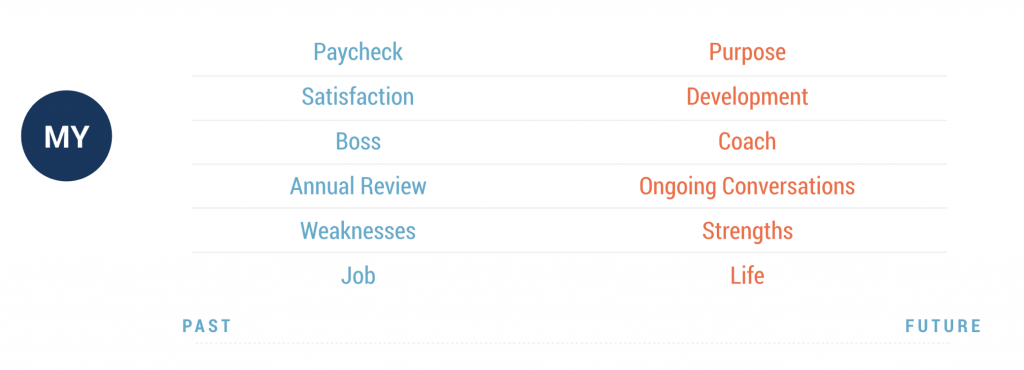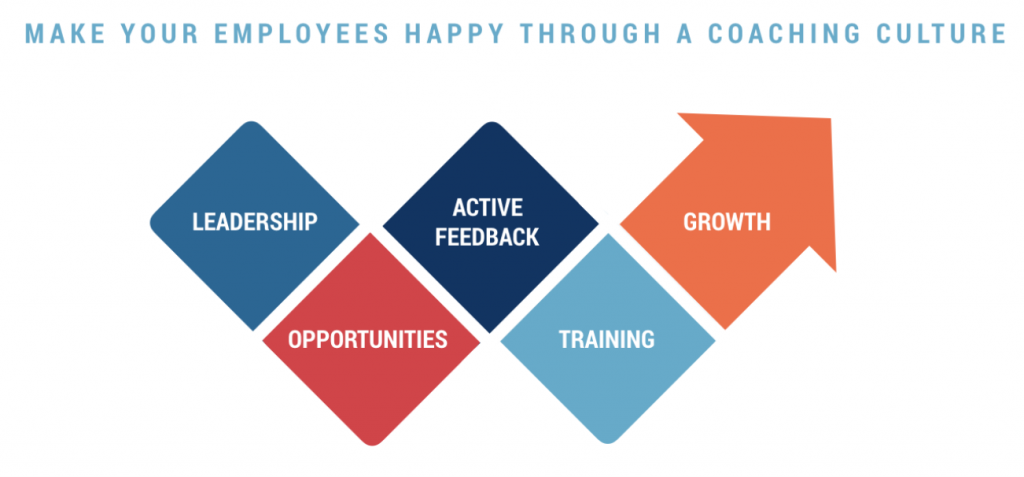The Natural Shift to Career Coaching in the Modern Workplace
3 min read
The modern workplace brings new challenges for employees and managers. Changing job requirements, fast-moving technology, global expansion and the existence of cross-functional teams predict a tremendous change in the modern workplace.

The global expansion of companies involves new challenges in working with remote individuals and millennials (currently being 38% of the U.S. workforce). These changes come with new demands on managers. The workplace is evolving, and so must the way employees are managed and developed.
People Don't Quit Jobs - They Quit Bosses
— The Street
A thorough investigation of these changes has revealed that employees are demanding a shift away from traditional management practices and toward career and personal coaching that require personal development approaches to their natural talents, performance needs and sense of purpose. (Gallup 2018)
People’s happiness comes from a combination of company culture (the environment, employee peers, mission, values, ethics, expectations, and goals), people engagement (employees want to love their job and their company; they want to know that what they do is valued and matters), personal development (they plan for their personal, academic and career development) and work-life balance (they want to be trusted to work from home, coffee shop, or anywhere they desire).
We studied the industry trends in coaching for the next decades and we narrowed down to the top 3 most important of them. The following trends are predicted by the Forbes Coaches Council.
People’s happiness is a key element to your success.
1. Executive Coaching Not Just For The Elite
Due to the increase in certified coaches, the improved ROI that results from pairing coaching with leadership training, and the normalization of coaching rates due to a supply and demand shift in the market, coaching will become more commonly used in employee and leadership development at all levels. Coaching will no longer be viewed as something that is only available at the executive level. – Amy Douglas, Spark Coaching, LLC
2. Relationships, Results, And Rewards
Clients will seek out coaches with practical wisdom they can quickly weaponize against their most pressing concerns. Time frames for success and expected gains will be tighter. The demand for pithy insights and proven strategies anchored by relationships, results, and rewards will increase. A coach’s ability to build mutually accountable relationships quickly will be paramount to their success. – Hayward Suggs,Commonquest Consulting
A coaching culture means supporting your people so that they learn new skills and become greater assets to your company.
3. Ability To Demonstrate Measurable Results
What will set successful executive coaches apart from others in the coming years is their ability to demonstrate measurable results. Savvy clients will only choose executive coaching organizations that can clearly demonstrate how they helped their coachees move the needle. Pre- and post-360 interviews, structured feedback, and other tools will be used to quantify and qualify results. – Loren Margolis,Training & Leadership Success LLC

We took all our learnings and we applied them in Nestor for assisting companies to nurture a coaching culture in their organization through AI technology, deep coaching knowledge, and powerful leadership tools.










